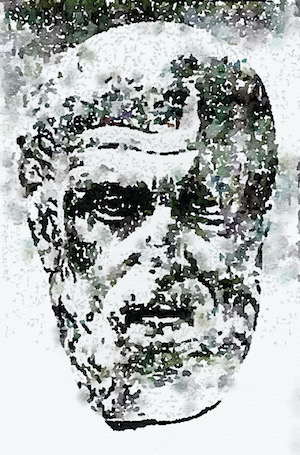
While the basic biographical details of the Greek historian, public servant, military commander and philosopher Arrian of Nicomedia (Latin: Lucius Flavius Arrianus; (c.95- c.180CE) are sketchy, there is little doubt that he was born into the Greek provincial aristocracy. His family seem to have enjoyed Roman citizenship for several generations, possibly as far back as the Roman conquest of Bithynia [modern-day İzmit in Turkey] around 170 years earlier.
After a spell in Epirus (117 to 120 AD) attending lectures by the Stoic philosopher Epictetus of Nicopolis, he moved on to Athens, where he became known as the young Xenophon the similarity between his relation to Epictetus and that between Xenophon and Socrates.
After serving as an officer in the Roman army, he produced his first literary work, Periplus of the Euxine Sea, a guidebook to destinations around the shores of the Black Sea. He addressed the work to Emperor Hadrian, who appointed Arrian to the Senate around 126 AD and consul suffectus (replacing a consul who was unable to complete his year-long term) in 132.
In 136, he was appointed prefect of Cappadocia (legate in 131-37), where he edited the eight-volume Encheiridion of Epictetus. The four surviving volumes of the work are the only source detailing his mentor's life and teachings. In the Middle Ages, they were used as a guide to monastic life. He is also reputed to have compiled twelve volumes of conversations with Epictetus, though only fragments remain.
Around the same time, Arrian produced the Techne Taktike, a treatise on cavalry and military tactics. He also wrote Cynegeticus ("The hunting man") about hunting dogs, canes venatici, the Celtic grey-hound, revising Xenophon's monograph on the subject, and various essays. Ektaxis kata Alanon ("The Order of Battle Against the Alans") detailed a campaign during his term as governor of Cappadocia, where Arrian's Arrian's two legions repelled an invasion of the Alani during 135 AD.
His lost works include Parthica, a seventeen-volume account of the Parthians, including Emperor Trajan's war against them, and an eight-volume history of Bithynia,
His chief work is the Anabasis of Alexander, a seven-volume history of the campaigns of Alexander the Great, which drew on Xenophon's account and has survived almost intact. An eighth book, Indica, deals with various matters about India and Nearchus' voyage with Alexander's fleet, drawing heavily on Megasthenes and Eratosthenes and the journal Nearchus kept.
From that body of work, however, only the Indica and the Anabasis have survived intact. There are three fragments of the ten-volume History of the Diadochi or Events after Alexander, delivering some details about Alexander's successors.
After Hadrian died in 138), Arrian retired to Athens, where he held the office of archon (judicial magistrate) and occupied himself with literary work, then moved on to Nicomedia, where he was appointed a priest to Demeter and Persephone. He died there during the reign of Marcus Aurelius.
Sources:
Chambers Biographical Dictionary
Encyclopedia Britannica